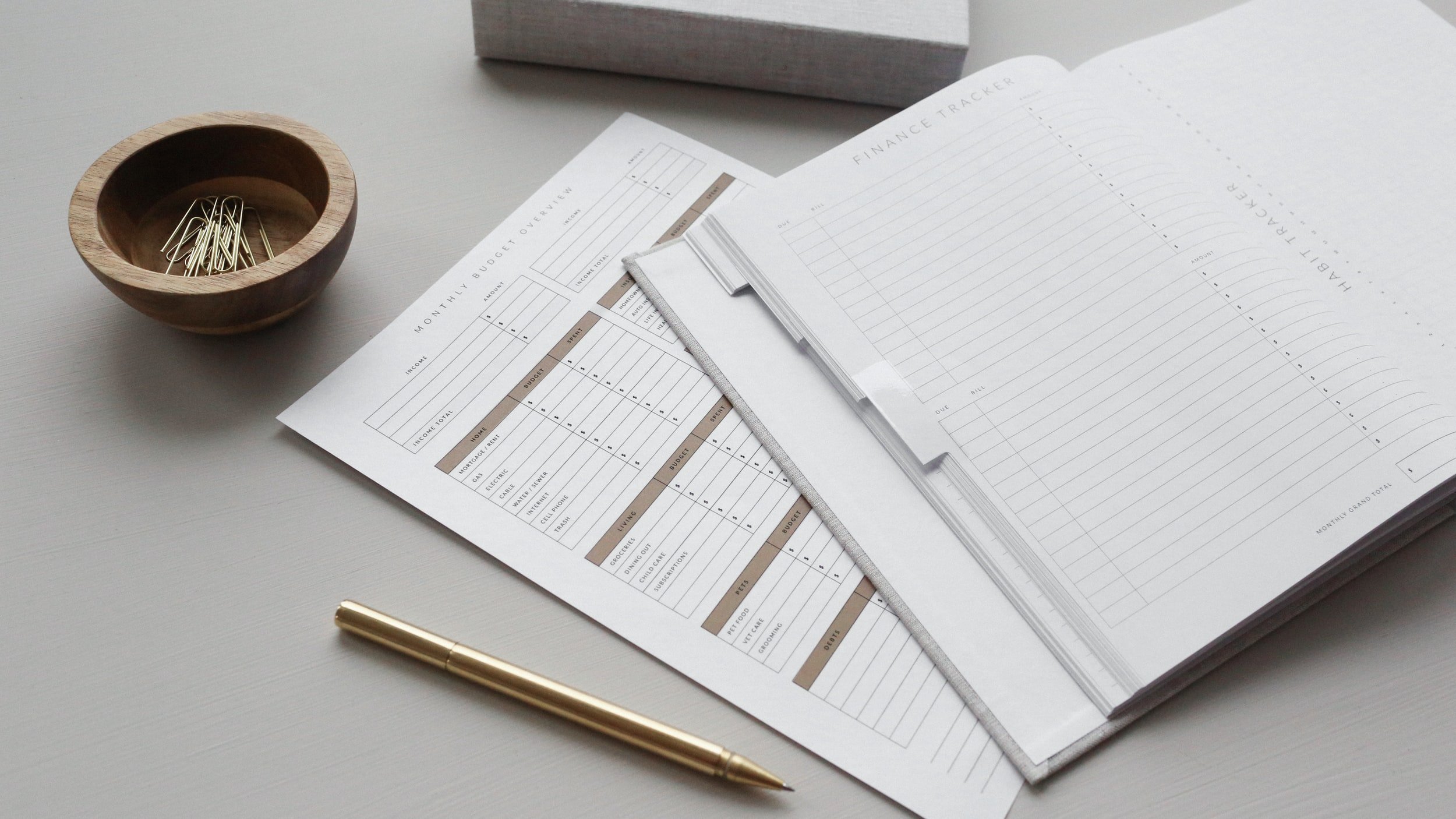How Can I Improve My Grammar?
English learners often hate to hear the g-word - grammar - when it comes to improving their language skills. They know that it’s a key part of being fluent in English, but it can be so hard to find interesting materials or teachers who know how to make grammar simple and functional.
And, if you’re like many students in the world, you may not have had access to an affordable or good English education.
I’ve known so many students who fall in this category. They are able to make a living and get by well enough in an English-speaking country. But many of them feel that their lack of grammar knowledge in English is holding them back from the opportunities they’d really love to pursue.
If you’re like them, or if you’re just frustrated with your grammar level at the moment, don’t worry. You’ve got this, and we’re going to talk about some steps you can take to focus on your grammar and get it to the place you want it to be.
If you want to improve your grammar, here are some strategies and steps for you:
Figure out what your goals are with English grammar
Figure out what your specific issues are with English grammar
Improve your grammar with reading
Improve your grammar with writing
Improve your grammar with listening
Improve your grammar with speaking
So, if you’re ready to learn and create a plan for learning grammar, let’s jump in!
Teaching English Just Got Easier!
Save hours of time with an organized collection of high quality, easy-prep ESL lesson plans and worksheets right at your fingertips.
How to Improve Your Grammar
Figure out what your goals are with English grammar
Grammar can sometimes feel like a vague, giant, inaccessible beast of a thing that you’ll just never understand.
And, unfortunately, people judge others based on their bad grammar or their mistakes, which only adds to the anxiety you feel when you’re trying to get better and practice more.
That’s why it’s better to focus on smaller, achievable goals that you can measure. Here are some examples of short-term goals:
Make fewer mistakes when I’m giving a presentation in English.
Have a conversation in English at a networking event with one or two mistakes
Read and understand eighty percent of an article in The New York Times.
Listen and understand eighty percent of a Ted Talk.
Make only two mistakes when writing emails in English.
If your goals for grammar are a bit bigger and more long-term, break them down into smaller steps. The smaller you can make the steps, the less anxiety you’ll feel and the more likely you are to take action. For example:
Be able to apply for and get a job in an English-speaking country
Read some job descriptions and find the keywords and skills they are looking for.
Write a resume based on those descriptions.
Write a cover letter based on those descriptions.
Have a teacher or friend proofread your resume and cover letter for grammar mistakes.
Submit and apply!
Find someone to help you with your grammar when you do your interview practice.
Prep your grammar for an interview.
Interview!
Get a higher score on an IELTS or TOEFL exam
Learn all about the different parts of the test and how it works.
Sign up for the exam at least three months ahead.
Read or watch videos with useful strategies and tips for each part of the test.
Start doing short practice drills every day to improve your listening, writing, reading, and speaking skills.
Take a practice test and assess your current level.
Start taking a few practice tests every week.
Start focusing on your biggest areas of struggle and drill it more every day.
Take the test!
And if those steps feel like too much, remember you can break it down as much as you need to. For example: Step 1. Open the book. Step 2. Read a paragraph. Step 3. Take notes.
Be patient with yourself. You can and will figure out your ideal process for improving your grammar.
Figure out what your specific issues are with English grammar
In order to get to the bottom of your issues with grammar, you need clarity about what grammar actually is. It’s not just about the ability to function in English. Having good English grammar is about knowing the rules, patterns, and commons structures of English and being able to understand them and use them.
Grammar rules can feel annoying, but ultimately, we need them so that people can understand us in the way that we want to be understood.
And, the thing that most people may not want to hear is: it takes a bit of study and practice.
To get a clear sense of where your grammar problems are, you need a reference. If you can, take a look at something you’ve done in English, like a recent piece of writing or a lesson you had.
If you don’t have any recent materials for reference, create something now. Sign up for a lesson with a teacher, or find an honest friend or language partner. Let them know what your goals are, and ask them to assess your writing and speaking. Don’t be satisfied with the response, “You just need more practice.” Ask them what you need to practice with your grammar specifically.
If you like rubrics, which are charts that teachers use to assess students based on specific factors, you can ask your teacher to assess you based on a rubric and ask them to share that rubric with you so that you can use it in the future.
If you don’t have access to a lesson with a teacher, try to assess yourself. Record yourself speaking for two minutes. Then, write for five minutes, and read what you’ve written. If you can, find someone to send your materials to for feedback.
But, if you don’t want to send your materials away, try to assess it for yourself. Assessing yourself is also great practice, and it’s something you should get used to doing.
Ask yourself:
Do you struggle to use a specific tense?
Are you using the same tense or structures over and over?
Are your sentences too short and simple?
Did you forget how to use specific structures?
Do your subjects and verbs agree?
Do your ideas make sense?
The more specific your problem, the easier it is to fix it, and, again, the more likely you are to fix it.
And, if you still have absolutely no idea what your issues are, here’s a list of resources for inspiration:
Improve your grammar with listening
It’s important to engage all of your language skills when you’re focusing on grammar. And you can make your listening routine a part of that.
Listen to grammar podcasts
Short grammar podcasts can be a great way to learn and practice because they help you break your learning down into small, time-saving chunks.
I recommend you start with 6 Minute Grammar from the BBC, and then, as you get more comfortable, try the Grammar Girl podcast. She focuses on writing tips, but you’ll still learn a lot about grammar.
Listen to podcasts and watch short videos about things that interest you
As you’re starting out, I recommend sticking with News in Slow English. And, if you’re a fan of radio shows or dramas, you should check out Dramas from BBC Learning English.
We also create ESL lesson plans around videos about travel, food, and movies, so be sure to check those out, as well!
As you do, again, get ready to do some active listening and take notes. Make grammar connections when you listen:
What tenses did the speaker use?
Did they use passive voice or active voice?
Were there any structures that confused you?
What grammar tenses and grammar structures do you hear in certain situations?
Are there any structures you don’t recognize?
Improve your grammar with writing
Don’t skip this step if you really want to improve your grammar. Creating a writing practice is going to help your grammar improve so much faster.
Practice one or two grammar points at a time
When you learn a new grammar point or structure, it’s really important to drill it first with controlled exercises before you do any longer writing.
So, make sure that you don’t try to practice with more than one or two structures or tenses for a drill or writing exercise.
Practice with sentence building
If you’re a beginner with writing, start by writing a sentence with three words, and build on it to create a seven-word sentence.
Then, once you’re more comfortable with that, try building on your sentences to write a paragraph.
When you’re feeling ready, use a writing prompt generator to write a story. Then check your writing to see what grammar points you might need to work on.
Make your writing task-based
A great way to make sure that you’re focusing your practice on the grammar you really need in your life is to make your writing task-based. This means that you should practice the kind of writing you need or will need to use in the future.
So, practice writing emails for work. Write a mock resume or cover letter for your dream job. Write an essay for a class that you might want to take in graduate school.
Be creative! Just make sure that you’re also focusing on your grammar, and check your writing for mistakes.
Improve your grammar with speaking
And, of course, you have to practice using your grammar when you speak, too. But how?
Teach a short grammar point to an inanimate object (the rubber duck method)
I love the rubber duck debugging method. It was developed by computer programmers who need to solve their coding problems, but it can work for anyone!
Just find a rubber duck, a houseplant, a picture of your best friend, or a patient family member who is willing to listen. Then, teach them a grammar point that you’re learning! This will help you retain what you’ve learned in a really effective way.
Make your speaking practice task-based, too!
Again, in order to make sure you’re focusing on the grammar you really need in your life, make your speaking practice task-based.
So, focus on using the past tense or conditionals in a mock interview. Ask a friend to help you with a mock IELTS speaking test, and practice your comparative structures. Try using transitional phrases in a mock networking event with work colleagues.
There are so many ways you can make this kind of practice work for you.
Practice with a teacher or find a group class
An English teacher can really help keep you accountable for your grammar practice and progress.
And, if you can’t find a one-on-one teacher, a great, low-cost option could be a group class. If you’re living in the U.S., (and even if you’re not) contacting an adult learning community or literacy center can help point you in the right direction for low-cost or free group classes and resources. Some of them even offer online options!
Practice grammar with our ESL Lesson Plans!
If you don’t know where to start with your grammar, you should check out our growing collection of ESL lesson plans! We created them so that you can practice reading, listening, writing, and speaking, and you can use them as part of your self-study routine or in class with a teacher. They’re functional, interesting, and developed with our students and readers in mind.
About the Writer
Marta is an online ESL teacher who works with students from around the world. As a writer, language nerd, and content contributor for In English With Love, her mission is to empower English learners with knowledge and positivity.

















